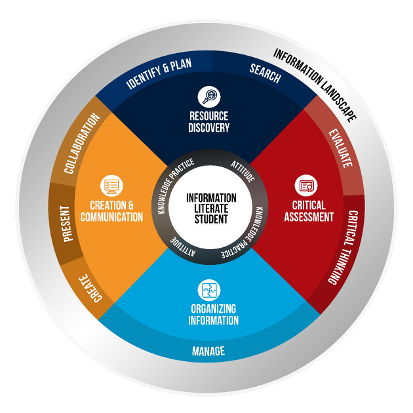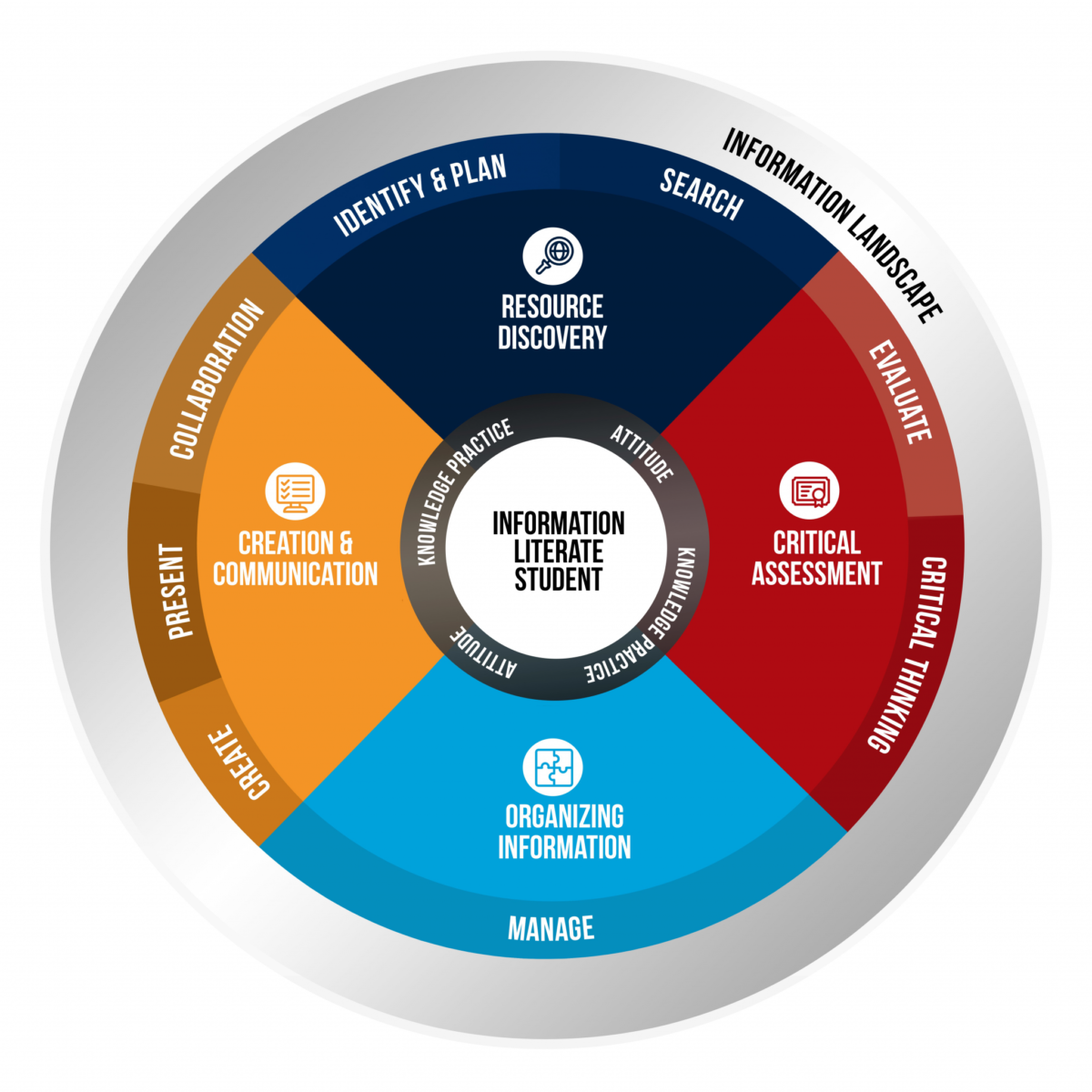Besides information literacy, digital literacy becomes increasingly important. Digital literacy is the ability to navigate ethically and professionally in today’s digital world, as well as to develop a critical mindset and staying up-to-date with digital technologies. Currently, the library is working on workshops and materials for digital literacy.
The library is also developing content for the responsible use of GenAI tools. Soon, our website will provide more details. However, if you already have inquiries concerning digital literacy, please get in touch with us through Ask Your Librarian.
Student
Teacher
UM information literacy framework
Resource Discovery
Resource discovery is about identifying and finding the information sources you need. This is about defining your information need, conducting basic and advanced searches of literature and data sources, and using academic databases. Discovering resources also includes the evaluation of your search outcomes and refining your search strategy. Go to modules
Critical Assessment
Critical assessment is about developing the skills and attitudes to evaluate the sources that you find. It consists of critical thinking about, evaluation, and critical reading of information. Assessing sources is also about recognising and reflecting on the author’s and your own biases. Go to modules
Organising Information
Creation & Communication
Creation & communication is about the creation, presentation, and communication of information. You will learn about the creation of public and academic information as well as its presentation in different formats (e.g. infographics) to different audiences (e.g. students). In addition, you will get to know different rules and techniques to effectively and ethically collaborate and communicate in online spaces. Go to modules
Background Framework
Information is everywhere around us: from (digital) books and articles to social media notifications and videos. To define the skills and attitudes that students (and staff) require to navigate through such an information jungle, the Information-Wise project team (a collaboration between the University Library, EDLAB, and faculties) developed a framework for information literacy for the PBL context. The UM information literacy framework presents the vision for an information literate bachelor student at our university. Do you want more information about the framework? Open the PDF.
The framework builds on the principles of PBL and entails four dimensions: 1) Resource Discovery, 2) Critical Assessment, 3) Organising Information, 4) Creation & Communication. For each dimension, several modules were developed.
What does information literacy mean?
Information literacy is the ability to discover credible sources and critically evaluate information. You, as an information literate individual, can ethically organise information and engage actively and consciously in the creation and communication of information.
Why do I need information literacy skills?
When studying in a Problem-Based Learning (PBL) environment, you will develop the skills and competences to deal independently and critically with information which ranges from academic literature to discipline specific sources such as statistics, data visualisations, historical documents, images and popular media, to name a few. These skills and competences are essential for the labour market in the 21st century. Next to that, employers are also looking for employees who are able to search, evaluate, organise, and communicate information with confidence. Information literacy skills will give you the confidence to deal with information in an appropriate manner.


